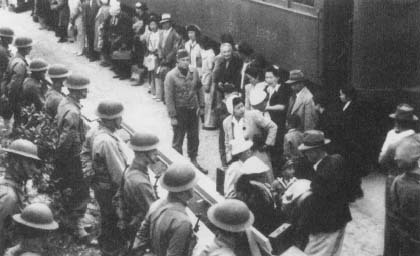

She and her family were sent to Tule Lake, California, and she was later relocated to Topaz, Utah.Ī view of the Topaz Relocation Center where Endo was kept. She and 63 of her colleagues lost their jobs and were deported to different camps throughout the country. From limited accounts available, it seemed like she had a pretty “normal” childhood – she went to high school, got a job, her brother served in the US Army, they spoke English at home.Įndo had found work for the State of California but after Pearl Harbor, California forbade anyone of Japanese heritage from working for the State. To place this time in context, the anti-Japanese sentiment was rampant, with restrictive property and employment laws to match. This immediately granted her citizenship, a privilege not granted to Japanese immigrants. Mitsuye Maureen Endo was born in Sacramento in 1920. In it, the Supreme Court decided unanimously that American citizens could not be detained indefinitely in War Relocation Centers if there was no evidence of disloyalty to America. 18, 1944), specifically challenged the constitutionality of the detention of American citizens. Hirabayashi (l), Yasui (c), Korematsu (r) United States(June 21, 1943), the Supreme Court upheld the curfew his arrest was constitutional because the US was at war with the country of Hirabayashi’s ethnic origin. Gordon Hirabayashi also broke curfew and was arrested. United States(June 21, 1943), the Supreme Court declared that curfews against citizens were constitutional. Minoru Yasui was the first: he broke curfew in a deliberate attempt to question its constitutionality. Korematsu was one of four cases that tried to overturn the incarceration camps through the legal system. 18, 1944), went to the Supreme Court, which upheld his conviction and the necessity of the removal of all Japanese Americans. Fred Korematsu, about whom I’ve written before, was arrested for breaking curfew. Many, li ke this young man, served his country despite his family’s incarceration, hoping that his example would make the rest of the country see him for what he was: an American.

Takei wrote a book about his family’s experience, which I reviewed here. Some, like George Takei’s parents, were again faced with the already complicated issue of being both American and Japanese.


 0 kommentar(er)
0 kommentar(er)
